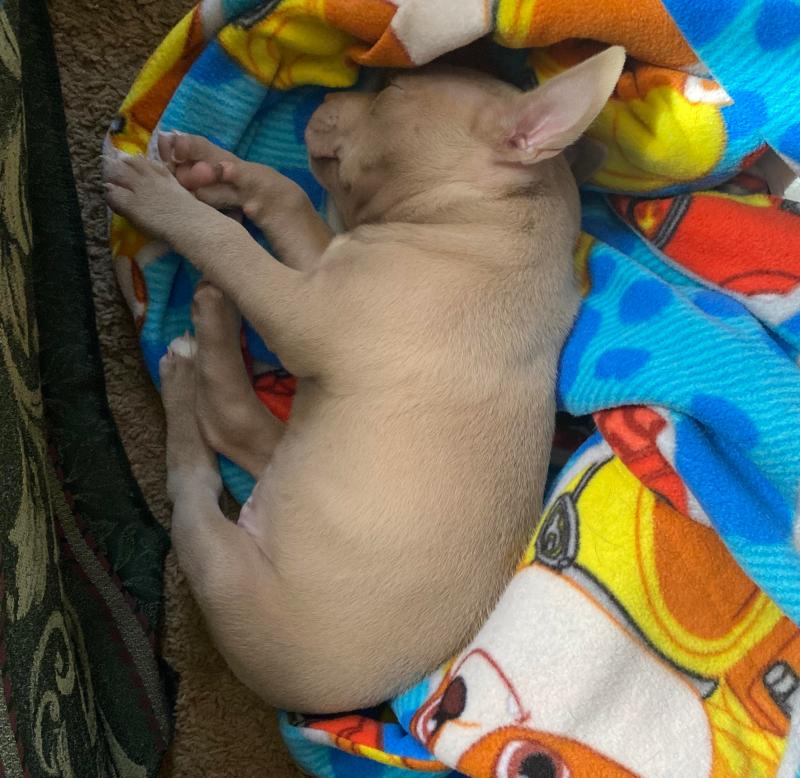Will My Dog Miss Me When I Give Him Away – Does my dog really miss me when I’m gone? It’s a question we hear a lot. Whether you’re inspired by “dog parenting mistakes” or simply want to know if your dog’s behavior really reflects what the owner thinks, the question will inevitably come up.
So, let’s look at the behavior of the animal and decide: does your dog miss you when you leave the house?
Will My Dog Miss Me When I Give Him Away
Gregory Berns, Ph.D., M.D., is a professor of psychiatry and behavioral studies at Emory School of Medicine. He is responsible for a research study known as “Project Dog” that confirms what every dog owner wants to believe. Dogs love their people, and your pet has the ability to miss you when you’re gone.
Will My Dog Think I Abandoned Him When I Go On Vacation?
Dogs have associative memory. This term indicates that dogs associate certain things they encounter—such as sounds, smells, or sights—with other events or behaviors. For example, if they hear your keys jingling as you pick them up, they may associate that sound with the fact that you’re about to leave the house.
Many dog owners have experienced behaviors that show their dog is expressing different emotions. This behavior is easily seen by other family members who are still there as their favorite people. So how can you tell your dog that he misses you?
At home These can include small things like tripping over the food bowl, but can range from destructive behavior like chewing on furniture or having an accident at home. If your dog exhibits these behaviors regularly, you may have a more serious separation anxiety problem. The stress of losing you is more than your dog can handle and he acts out as a result. This behavior requires attention.
There are ways to treat and reduce separation anxiety. You can train your dog to associate happy things with your outings (like hiding a Kong toy) or provide distractions throughout the day. Other options include puppy sitting or hiring a dog walker to provide your dog with relief and companionship. Your dog might need it too
What Is This Bump On My Buddies Lip? I Noticed A Bump A Couple Of Days Ago That Was More His Skin Color But It Is Obviously Super Red Now. Any Advice
Medications These are all topics to discuss with your vet to formulate a plan to help your pet be as happy as possible.
Gulf Coast K9 Dog Training is here to help. From training and behavior solutions to obedience classes and play grooming, we have everything you need to keep your dog safe and healthy, even if he continues to surprise you when you’re not around.
Jillian Vogel, owner of Gulf Coast K9, trained at K9 Connection in Buffalo, NY before opening Gulf Coast K9 in South Florida. Her passion lies in helping dogs overcome obstacles, big and small. In 1997, MAR Network Director Kat Albrecht began studying the behavioral patterns of stray cats and dogs. Because of her background in search and rescue (finding missing persons), Kat understands the critical relationship between

There is an important distinction to be made between the behavior of a dog and a stray cat, and it has to do with this
The Top 9 Reasons Why People Give Up Their Pets
. When potential rescuers see a cat walking down the sidewalk, they rarely (if ever) say, “Look! That cat has to go!” However, when those same would-be rescuers see a helpless, shaking Chihuahua walking down the same sidewalk, they may say, “Look! The dog has to go!” Both cats and chihuahuas can be strays, but people see loose dogs differently and are more likely to step in (and “rescue”) the dog. This means that in most lost dog cases, you are actually looking for people: people who found your dog (and have custody of it) or people who have seen your dog (and know the areas you should be looking for). Posting lost (and found) dogs online on local (and statewide) Facebook pages and places like Craig’s List, Kijiji (Canada), and NextDoor is very effective.
You need to market your lost dog because you need to tell as many people as possible that your dog is missing. Social media, giant neon signs, “marking” your car and “intersection signs” are very effective methods that can and should be used.
If you need help, check out our Detective Pet Directory page to see if you can find local resources (volunteers, paid professionals, or Facebook teams) that can help you in your quest to recover your lost dog.
Below is a small sample of what Kat has learned about lost dog behavior and is now teaching the pet detectives and consultants listed in the Pet Detective Directory. We hope this information will help you recover your lost dog.
Is My Dog Mad At Me? How To Tell And What To Do
Many dogs, even those that are not normally fearful at home, become fearful when lost. While some dogs will eventually calm down and then approach people, other dogs will continue to run away from everyone, including their owners. One of the worst things you can do is CALL a stray, weak or panicked dog. That’s because if too many people have tried to catch the dog, its call becomes a “trigger” that can cause it to automatically run away in fear when someone, including its owner, calls. Instead, you must use “Calm Signals” to calm the dog’s fear and entice him to come to you using specific body language and food lures. In the video below, MPP founder Kat Albrecht demonstrates how to calm and lure a panicked dog. If you are looking for a lost dog WATCH THIS VIDEO!
Our first tip is Don’t call your dog! we know each other It’s silly to say “Don’t call your dog!” after your dog escapes and runs away (or when you encounter a stray dog). You might be thinking, “But he always comes to me when I call him” or “So HOW do I get the dog to come to me if I see him but can’t call him?” The answer is CALM HER and ATTRACT him to you and we explain how to do that. But first, we need to explain that A DOG’S PATH CAN MAKE HIM RUN AWAY FROM YOU. Your instinct when the dog runs away is to chase it and that is the WORST thing you can do! So when you hear or see the words “DO NOT RUN YOUR DOG if you lose it”, that includes DO NOT CALL your dog (as calling the dog can create a chase). Visit Don’t Call Your Dog! page for more information.
The three most common reasons dogs are separated from their families are opportunistic travel, wanderlust and blind panic.

Opportunistic trips are when a door or gate is accidentally left open. While some dogs will stay in the yard or home, most can’t resist the temptation to explore when they get the chance. While these dogs may not be actively trying to run away, their noses only lead them on journeys that can take them blocks or even miles from home.
Why Does My Dog Sit Behind Me On The Couch, Right Against My Back? Does He Respect Me?
Wanderlust is a common problem in intact male dogs of any breed, as well as in certain breeds such as bloodhounds. These dogs will actively try to escape by climbing, digging, or moving to escape the yard. They will also lock doors or walk away from their handlers if the opportunity presents itself. Wanderlust is responsible for the transfer of many dogs and a major contributor to the stray population in our shelters.
Blind panic is a situation where the “flight” instinct (from the controlled “fight or flight” response to a stimulus) kicks in and a dog runs in what we call blind panic. This can happen for three reasons: xenophobic behavior (arrogance), loud noises (thunder, gunshots) or traumatic incidents (involved in traffic accidents, explosions, etc.). These dogs are the hardest to catch because they will travel far, travel fast and avoid human contact, even with their family members.
There are human behavior, animal behavior, and other factors that affect how far a lost dog will travel. When giving recovery advice to someone who has lost a dog, be sure to consider the following:
There are six main factors that affect how far a lost dog will travel: temperament, conditions, weather, terrain, appearance and population density.
What I’ve Learned From Loving A New Dog While Grieving Another
How a dog behaves around strangers affects how far it will go (when lost) before someone steps in and rescues it. There are three main categories of stray dog behavior: sociable dogs, aloof dogs and xenophobic dogs.
Sociable Dogs: Fat, friendly dogs are more likely to go to the first person who calls them. Depending on the terrain and population density in which the dog goes missing, the dog will usually be found relatively close to home or picked up by someone close to where it escaped. Friendly dogs are often “adopted” by the people (not shelter workers or rescues) who find them.
Quiet Dogs: Dogs with a solitary temperament are wary of strangers and will avoid people at first

My husband passed away and i miss him, my brother passed away and i miss him, give him a chance to miss you, will my dog miss me when i give him away, give my dog away near me, will no contact make him miss me, will my dog miss me, give my dog away, give him time to miss you, make him miss you when he pulls away, give him space to miss you, give him space when he pulls away


